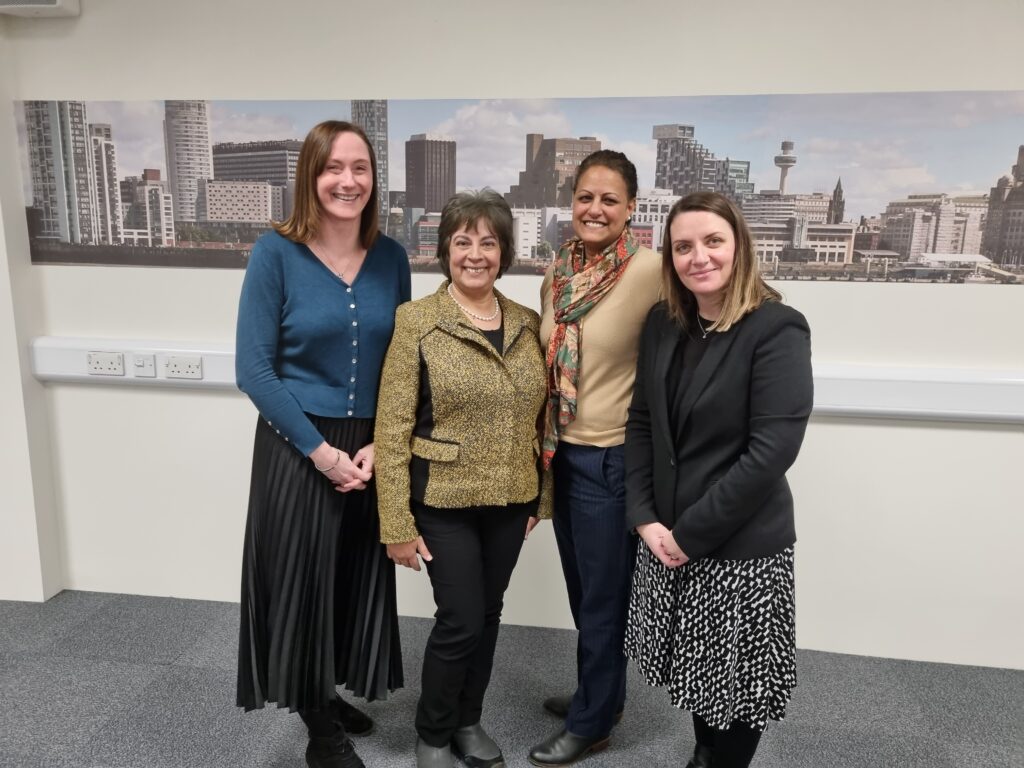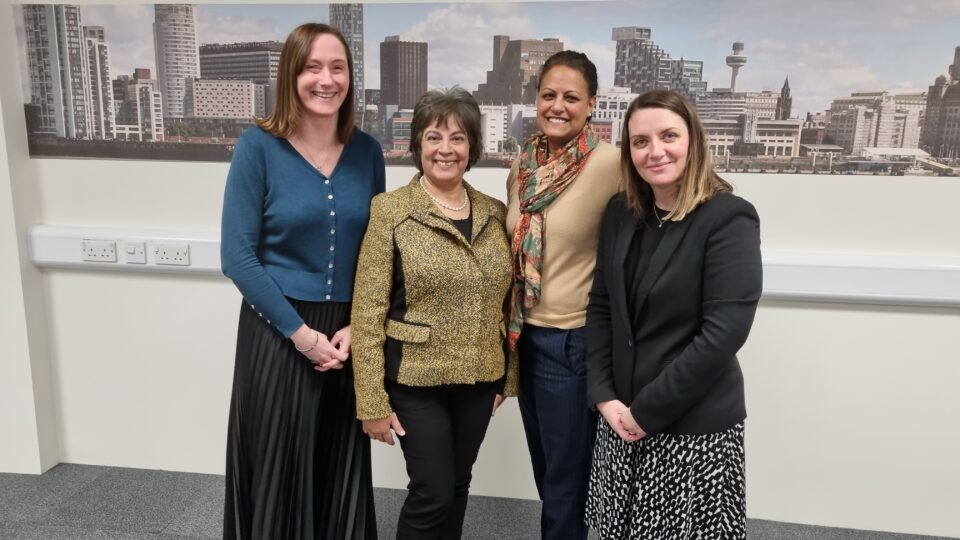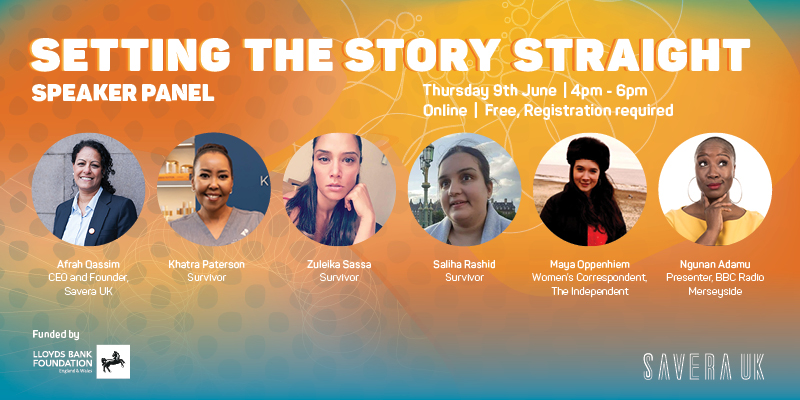In January, Savera UK and research partners the University of Liverpool hosted an event to share findings from upcoming papers on HBA, discuss the practical implications and future research into the complex and challenging nature of HBA and harmful practices.
Our panel comprised Professor Khatidja Chantler, Professor of Gender, Equalities & Communities at Manchester Metropolitan University and Professor Michelle McManus, Professor in Criminal Justice and Safeguarding at Northumbria University.

Professors Chantler and McManus were joined by Louise Almond, Professor in Investigative and Forensic Psychology, University of Liverpool and Afrah Qassim, CEO and Founder of Savera UK, who are co-authors of a groundbreaking study examining survivor, perpetrator, and abuse characteristics in anonymised cases of HBA and harmful practices, the first academic paper to develop from the university’s partnership with Savera UK.
The event, which was attended by academics, professionals from voluntary and statutory services and other frontline workers supporting survivors and people at risk of HBA and harmful practices, started with a review of the first research paper, published in 2022, which aimed to increase understanding of HBA. The data source was from Savera UK data of 160 anonymous cases.
Perpetrator Types in HBA
It then moved on to reviewing initial findings from further research. The first area examined was from a paper that has recently been submitted for publication, looking at perpetrator types in HBA. The research took data from 107 cases and examined them from a perpetrator perspective, identifying three main perpetrator types – intimate partner, family and both intimate partner and family.
Discussing these perpetrator types, of the ‘both intimate partner and family’ group, Professor McManus said: “In relation to domestic violence research, this group tends to be the most complex, violent, and non-discriminatory in terms of who their victims are. In turn this means victims tend to get missed by the system. Therefore, bringing attention to this group is important.”
HBA Survivor Geographical Origin and Age
Further data looking at HBA characteristics associated with survivor geographical origin and age, was then presented by Doctoral Academic Teacher, Rebecca Ritchie. The aim of the study into age was to examine whether HBA characteristics were significantly associated with the survivor’s age , separating survivors into three groups, 25 and under, 26 to 39-year-olds and 40 years and over, representing different life stages. The study into geographical origin aimed to examine whether HBA characteristics were significantly associated with the survivor’s geographical origin.
Professor Chantler noted that some research showed that all South Asian abuse was automatically badged as HBA in police data, even if it wasn’t. She also highlighted the problematic nature of the intersections between bride wealth, poverty, and gender as key drivers in forced marriage.
Professor Chantler said: “It is important to understand the nuances of what HBA means in different communities and to understand that it happens in lots of different communities, which is what this research shows.”
Practical Implications of the Data
Considering the practical implications of the data presented from Savera UK and the University of Liverpool’s studies, the expert panel agreed that it was important because it highlights that HBA happens in many communities, and it raises important questions about what legislation is available to support victims and what types of services need to be commissioned to respond more strategically to the issues.
The panel also agreed that the research identified safeguarding issues, with domestic abuse risk assessments not being fit for purpose and HBA occupying an even smaller and less understood section of this wider issue, meaning there is currently no good risk assessment for HBA. This challenge is further magnified by the fact that there is no complete definition in law for HBA and no central, national data to work with to develop better safeguarding processes and tools.
Opportunities for Future Research
Based on the challenges and questions raised by the studies presented, the experts agreed that there was an opportunity to conduct further research to explore HBA in relation to safeguarding systems – how to get better responses from practitioners, create or improve risk assessments and increase early identifications of risk.
Early interventions and community interventions to spot signs and recognise HBA risks early on were discussed as a key future focus, with most survivors at present only getting support when they reach a crisis point within their HBA experience.
Future research could focus on understanding this journey to the crisis point, where victims are referred professionally rather than voluntarily. Professor McManus noted that in domestic violence research, when issues are reported by a third party, the victim is less likely to cooperate with professionals than when they self-refer. By exploring what enables HBA survivors and those at risk to come forward, we can identify early interventions and learn how to help them sooner.
With no national data set on HBA available, it is not possible to get a true idea of prevalence in the UK, so this was an area raised as a future focus, with getting HBA questions included in the Crime Survey for England and Wales highlighted as a potential idea for development.
Exploring Underrepresented Groups
Professor Chantler also highlighted the importance of exploring underrepresented groups such as male or Romani survivors and analysing different power relationships. She said: “In a small sample of male victims I found that men face similar emotional pressure as female victims, but the outcomes are different. For example, although they were forced into marriage, they knew they wouldn’t stay in the marriage and could continue other relationships alongside due to their greater sexual freedom and autonomy that women don’t have.”
Final thoughts for future development in research into HBA was supporting data with strong case studies to raise awareness and inform support for survivors, increasing the power, impact, and effectiveness of research findings, as well as consideration of how HBA affects the family around the survivors, and how professionals can ask questions about HBA with sensitivity to reduce the stigma and “race anxiety” about the topic.
Ending HBA and Harmful Practices
Speaking after the event, Savera UK CEO and Founder, Afrah Qassim, said: “I would like to thank our panel, researchers and paper co-authors and event attendees for such an engaging and thought-provoking discussion around our research.
“The data around HBA in the UK is so limited and we know that we are only just scratching the surface. By working together, academics, frontline workers, and local and national authorities, we will be able to paint a clearer picture of prevalence of HBA and harmful practices in the UK and gain a deeper understanding of causes and characteristics. With that knowledge we will work to create interventions that will end these practices for good.”
With thanks to Beth Roper



